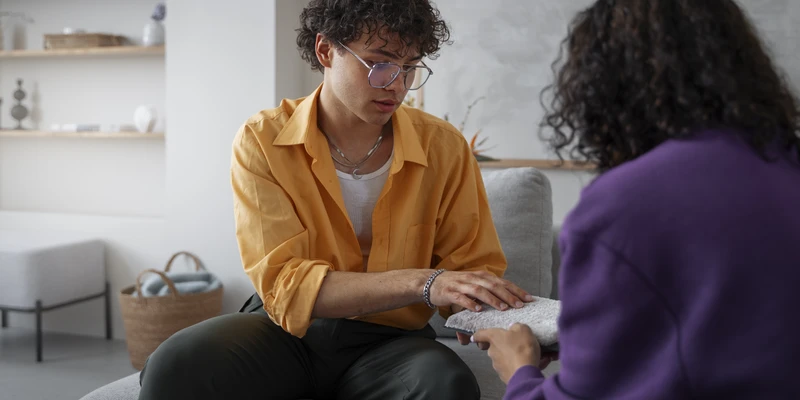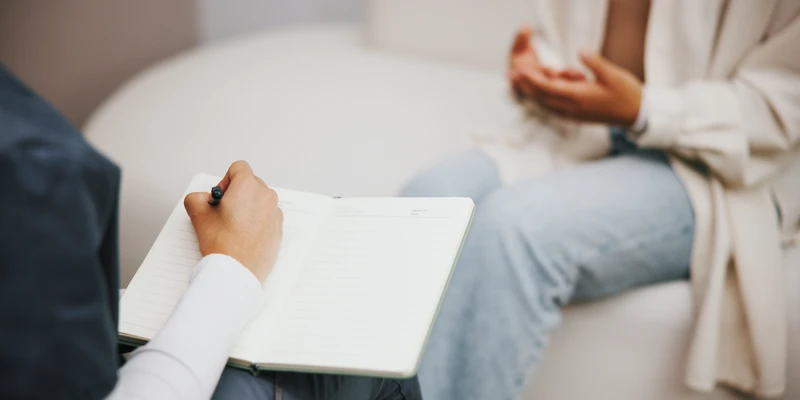
Table of Contents
- Cell Phone Policies at Inpatient Rehabs in LA
- Phone Use Guidelines in LA Outpatient Programs
- Device Use in Executive Rehabs Across LA
- Sober Living Homes and Device Privileges in LA
- Phone Rules by Client Group Teens, Couples, Veterans, LGBTQ+
- Why Phones Are Restricted in Some Rehab Centers
- How LA Rehab Centers Manage Phone Storage
- Alternatives to Personal Phones During Treatment
- Tips for Staying Connected Without a Phone
- Find a Los Angeles Rehab That Fits Your Needs

When entering a rehab facility in Los Angeles, one of the first questions many individuals and their loved ones ask is whether cell phones are allowed. This concern is valid—staying connected with family, managing responsibilities, or maintaining a sense of normalcy can feel essential during recovery. However, most centers have thoughtful cell phone policies in place to create a safe, focused therapeutic environment.
Rehab phone policies are designed primarily to protect clients’ well-being and to support the recovery process. Digital devices like smartphones and tablets can be sources of distraction, stress, or even relapse triggers. The goal of restricting phone access during rehab is not to isolate clients, but to foster deep engagement in treatment and reduce external influences that might interfere with recovery.
Policies vary based on the type of program, level of care, and individual needs. Some inpatient programs may implement more restrictive cell phone rules to help clients fully disconnect and focus on healing. Others, especially outpatient or executive programs, may allow limited access with guidelines.
Importantly, these rules also help maintain privacy in rehab—not just for the individual but for others in the facility as well. Minimizing phone use reduces the risk of privacy breaches, maintains group cohesion, and reinforces healthy boundaries. Ultimately, while tech restrictions at rehab centers in Los Angeles might feel challenging at first, they are often crucial to a successful and sustainable recovery process.
Cell Phone Policies at Inpatient Rehabs in LA
What to Expect During Phone-Free Detox
For most individuals entering an inpatient rehab center in Los Angeles, the first phase of treatment—detox—is conducted without access to cell phones. This period typically lasts from a few days to a week, depending on medical necessity and treatment protocol. During this time, the focus is on physical stabilization, safety, and adjusting to the treatment environment without outside distractions or stressors.
Because detox can be emotionally and physically intense, communication with the outside world may be briefly paused or limited to supervised calls initiated by staff. These early boundaries are put in place to promote safety, reduce exposure to triggers, and help you begin forming new, recovery-focused routines. Most programs communicate with families on your behalf when appropriate, offering reassurance while maintaining therapeutic boundaries.
Explore LA Inpatient Rehabs to better understand the varying policies around cell phone use and what to expect from different providers.
Supervised Use of Cell Phones in LA Centers
As you move beyond the detox phase and demonstrate stability in your recovery process, some residential rehab centers in LA may reintroduce limited, structured access to your phone or digital devices. This varies by facility, but common practices include restricted timeframes for use, supervised access, or use only in designated areas.
The goal is to balance personal autonomy with therapeutic accountability. You might be allowed to check in with loved ones, handle essential commitments, or use your phone during off-treatment hours—always within the bounds of the center’s overall rehab tech restrictions. The timeline and level of access are typically determined collaboratively by the clinical team based on your progress and needs.

Phone Use Guidelines in LA Outpatient Programs
Outpatient rehab in Los Angeles typically offers more flexibility in phone use than inpatient facilities. Because participants return home at night and are not in a fully controlled 24/7 environment, personal cell phone access is normally permitted. This can be especially helpful for those maintaining work responsibilities, staying in touch with family, or managing daily logistics like childcare.
That said, most outpatient centers still have specific expectations around appropriate phone use during treatment hours. Phones are often expected to be silenced or turned off during group therapy, counseling sessions, or any other structured activities. Misuse—such as disruptions or accessing triggering content—can lead to discipline or renegotiation of device privileges. These practices help preserve focus, respect privacy in rehab, and maintain therapeutic integrity.
Every outpatient facility may differ in its approach, so it’s important to ask about phone policies ahead of time. Some programs may restrict internet use or social media during early phases of care to support emotional grounding and limit outside distractions. Overall, outpatient rehab aims to strike a balance between personal freedom and supportive structure.
Device Use in Executive Rehabs Across LA
Executive Rehabs in Los Angeles recognize that professionals and business owners often can’t fully disconnect from work obligations during treatment. These programs typically offer more leniency when it comes to cell phone and laptop use, balancing recovery needs with ongoing professional responsibilities. While personal phone use may still be monitored, access is often granted during designated hours or for business-related communication.
These programs are designed with privacy, flexibility, and discretion in mind. Many executive rehabs provide private workspaces, Wi-Fi access, and scheduled times for communication, aligning with broader rehab communication rules while accommodating unique work-life demands. However, rules still vary by center and level of care—detox phases may limit device use more than outpatient or residential stages.
If staying connected to your career is essential, executive rehabs in LA can offer the structure and support you need without sacrificing your role. Always confirm specific policies directly with the center to ensure the level of access aligns with your professional needs and treatment goals.

Sober Living Homes and Device Privileges in LA
Sober living homes in Los Angeles often serve as a bridge between structured rehab and full reintegration into everyday life. Unlike inpatient rehab facilities, where phone and device use may be tightly controlled, sober living environments tend to offer more relaxed rules regarding cell phone and digital device access. This stage of recovery encourages clients to rebuild independent habits, including responsible technology use.
While there may still be house rules—such as no phone use during group meetings or quiet hours—residents usually have personal access to their phones. Internet-connected devices like laptops or tablets are often permitted as well, especially if they’re used for job searching, school, or maintaining healthy connections. These communities aim to balance freedom with structure, providing a safe space where accountability is maintained but autonomy is nurtured.
Ultimately, the goal is to help individuals transition back into daily life while continuing to protect their progress. Maintaining appropriate communication boundaries while regaining digital independence is a key component of this phase.
Phone Rules by Client Group: Teens, Couples, Veterans, LGBTQ+
Phone Guidelines for Teens in LA Rehab
Rehab centers that serve adolescents throughout Los Angeles implement structured phone policies to protect young clients’ privacy and promote healthy routines. Typically, phones are restricted or withheld during early treatment phases. Parental phone access may be scheduled or monitored, in line with both clinical recommendations and each program’s rules. These Rehab Guidelines for Teens help balance communication needs with a secure and focused recovery environment for teens and their families.
Staying Connected in Couples Rehab in LA
Couples attending rehab together often face unique challenges around communication, so centers may allow supervised contact during therapy or designated times. While device restrictions may still apply, these programs often offer structured opportunities for partners to stay emotionally connected. The goal is to support Couples Communication Policies while preventing codependency or relational stress that could hinder recovery. Staff are trained to maintain boundaries while encouraging healthy connection.
Communication Policies in LA Veteran Programs
Veteran-focused treatment centers in Los Angeles are generally more flexible with communication rules, recognizing the importance of social support and coordination with external services. Veterans may have greater phone privileges to stay in touch with family or access benefits, housing, or employment programs. These Veteran Rehab Phone Rules reflect the understanding that reintegration and recovery are closely linked for this population. Many rehab centers also facilitate call times to connect with peer networks or VA representatives.
LGBTQ+-Friendly Centers and Communication Access
LGBTQ+-affirming rehabs in Los Angeles often tailor their communication policies to reflect inclusivity and support system access. Recognizing that chosen families and external support networks play a crucial role in recovery, these centers may offer more opportunities for phone use depending on the stage of treatment. Inclusive Rehab Phone Policies prioritize privacy protections and emotional safety, affirming identity while balancing the therapeutic needs of the community. Staff are often specifically trained in culturally responsive care.

Why Phones Are Restricted in Some Rehab Centers
While it may seem restrictive at first, limiting or prohibiting cell phone use in rehab centers often serves a therapeutic purpose. The decision isn’t grounded in punishment or control but rather in fostering a structured, distraction-free environment where recovery can be the main focus. Personal devices, including phones, can disrupt that focus, especially during the early stages of treatment when individuals are vulnerable to relapse triggers or emotional instability.
One key reason for these restrictions is privacy in rehab. Cell phones can inadvertently compromise the confidentiality of other clients and staff through unauthorized photos, recordings, or messages. Additionally, unrestricted phone use can enable access to unhealthy relationships, substances, or emotional stressors from the outside world—all of which may hinder progress in recovery.
From a safety standpoint, rehab phone policy often aligns with legal and compliance standards meant to protect both clients and staff. For example, detox units or certain psychiatric segments have specific rules for preventing self-harm, and digital devices could pose a risk in these settings. In some cases, phone usage may be reintroduced gradually as clients reach milestones, reinforcing accountability and supporting long-term wellness. Ultimately, cell phone rules in rehab reflect the center’s commitment to a safe, therapeutic, and supportive healing environment.
How LA Rehab Centers Manage Phone Storage
When rehab centers in Los Angeles limit phone usage, devices are typically stored securely to maintain privacy and structure. Most facilities use locked lockers, safes, or designated storage areas where phones are kept safe until scheduled access times. This policy supports the broader goals of reducing distractions and protecting client confidentiality during treatment.
In some cases, clients may be allowed supervised access to their phones during specific hours—often for checking in with family or managing essential affairs. For individuals in executive or professional rehab programs, limited business-related phone access might be arranged under staff monitoring.
By managing devices responsibly, LA rehab centers aim to balance therapeutic focus with clients’ need for occasional connection, aligning with common rehab tech restrictions and promoting a substance-free environment that prioritizes healing.

Alternatives to Personal Phones During Treatment
If you’re entering a rehab center in Los Angeles that restricts cell phone use, you may be wondering how you’ll stay connected. Fortunately, there are alternative communication options that still respect the boundaries of the rehab phone policy while helping you maintain connection with loved ones.
Most facilities provide access to landline phones in supervised or scheduled time slots. These are typically located in common areas and available during free periods. Calls may be time-limited to ensure fairness and prevent overuse.
In many programs, especially inpatient or residential ones, staff can help coordinate approved communication times. Family members are often encouraged to participate in phone check-ins or scheduled family therapy sessions. Some centers offer written mail options or secure video calls coordinated through staff when phone access is not available.
These alternatives are designed to create a healthier digital boundary during recovery. While it can be challenging at first, limiting personal phone access encourages deeper engagement in the healing process while still allowing for meaningful connection with support networks.
Tips for Staying Connected Without a Phone
Spending time in a rehab facility without your cell phone can be challenging, but there are effective ways to maintain relationships and feel supported. Before entering treatment, let your friends and family know your schedule and establish expectations for how and when you’ll communicate. Coordinating designated call times—using facility phones or scheduled family sessions—can provide structure.
Many rehab centers in Los Angeles encourage letter writing as a meaningful way to stay in touch. Written messages allow for deeper expression and can be revisited throughout your stay for encouragement. Some centers also facilitate monitored emails or counselor-supported communication methods, depending on their rehab phone policy. Preparing loved ones ahead of time and setting up communication routines reinforces emotional connections, even without ongoing digital access. Support from others can remain strong, even without a phone in hand.

Find a Los Angeles Rehab That Fits Your Needs
Choosing the right rehab in Los Angeles involves balancing your recovery needs with personal preferences like communication access, support services, and privacy. Some facilities maintain strict rehab phone policies, while others provide structured access to digital devices or alternative communication tools. Whether you’re an executive needing limited phone time, a parent looking for a family-friendly program, or someone who values full digital disconnection to focus on healing, there’s a center designed with those priorities in mind.
Many programs also tailor treatments for specific populations, including teens, veterans, LGBTQ+ individuals, and couples. As you evaluate your options, consider how each center’s stance on phone use, visitation rights, and privacy might support—or hinder—your recovery. Taking time to find a facility aligned with your communication needs can strengthen connections while helping you heal.
Frequently Asked Questions
Are phones allowed in all LA rehab centers?
Not all Los Angeles rehab centers allow personal cell phones. Policies vary depending on the facility's approach to treatment, setting (inpatient vs. outpatient), and specific client needs. Some centers permit limited use during designated times, while others store phones until after program completion.
Why do some Los Angeles rehabs ban cell phones?
Rehabs may restrict phones to limit distractions and protect client privacy. Phone use can interfere with therapy, connect individuals to triggering influences, or expose others in treatment to privacy risks. These guidelines help maintain a focused, secure treatment environment.
Can I use social media during rehab in LA?
Most rehab centers do not allow social media access during treatment. This helps clients disconnect from stressors, minimize unhealthy comparisons, and focus on personal recovery. Exceptions may be made at executive or outpatient facilities with structured phone privileges.
Are family calls permitted in LA treatment centers?
Yes, most programs allow scheduled family calls, especially in inpatient settings where visitors may be limited. These calls are often supervised or planned during therapy to support healthy communication and engagement.
Do outpatient rehabs in LA allow phones?
Outpatient programs in Los Angeles often allow clients to retain their phones since they return home after sessions. However, some programs still enforce tech-free zones or request phones be silent during group or therapy hours.
What happens if I bring a phone to rehab?
If phones are restricted, staff will store the device securely during your stay. Some centers offer designated phone time on community phones or supervised phone access. You won't be penalized for bringing one, but you likely won't access it freely.
Can I use my phone at night in LA rehabs?
This depends on the center. While some residential rehabs provide limited evening access, others prohibit phones entirely to support structured sleep routines and limit late-night digital use. Always ask your provider about their specific hours and restrictions.
Do executive rehabs in LA allow phone access?
Yes, many executive or luxury rehabs allow more liberal phone and device access, especially for professionals needing to stay in limited work contact. Even so, some restrictions may apply to maintain a recovery-focused environment.
Are there alternatives if phones are banned?
If phones are not allowed, other options can help you stay connected, such as:
Can I bring a locked phone or tablet?
Bringing a locked device is generally permitted, but some centers may still require storing it during treatment. Be sure to discuss policies in advance, as rules vary depending on the device type and the program’s tech restrictions.








































